中華人民共和國人民法院組織法(2018修訂)(中英文對照版)
中華人民共和國人民法院組織法(2018修訂),主席令第十一號,《中華人民共和國人民法院組織法》已由中華人民共和國第十三屆全國人民代表大會常務委員會第六次會議於2018年10月26日修訂通過
法律文本
中華人民共和國人民法院組織法(2018修訂)
Organic Law of People's Courts of the People's Republic of China (Revised in 2018)
主席令第十一號
Presidential Decree No. 11
《中華人民共和國人民法院組織法》已由中華人民共和國第十三屆全國人民代表大會常務委員會第六次會議於2018年10月26日修訂通過,現將修訂後的《中華人民共和國人民法院組織法》公布,自2019年1月1日起施行。
The Organic Law of People's Courts of the People's Republic of China, revised and adopted at the 6th Session of the Standing Committee of the 13th National People's Congress of the People's Republic of China on 26 October 2018, is hereby promulgated, effective 1 January 2019.
中華人民共和國主席 習近平
President Xi Jinping
2018年10月26日
October 26, 2018
(1979年7月1日第五屆全國人民代表大會第二次會議通過 根據1983年9月2日第六屆全國人民代表大會常務委員會第二次會議《關於修改〈中華人民共和國人民法院組織法〉的決定》第一次修正 根據1986年12月2日第六屆全國人民代表大會常務委員會第十八次會議《關於修改〈中華人民共和國地方各級人民代表大會和地方各級人民政府組織法〉的決定》第二次修正 根據2006年10月31日第十屆全國人民代表大會常務委員會第二十四次會議《關於修改〈中華人民共和國人民法院組織法〉的決定》第三次修正 2018年10月26日第十三屆全國人民代表大會常務委員會第六次會議修訂)
(Adopted at the Second Session of the Fifth National People 's Congress on July 1, 1979; amended for the first time in accordance with the Decision on Revising the Organic Law of People's Courts of the People's Republic of China adopted at the Second Session of the Standing Committee of the Sixth National People's Congress on September 2, 1983; amended for the second time in accordance with the Decision on Revising the Organic Law of Local People's Congresses and Local People's Governments of the People's Republic of China adopted at the 18th Session of the Standing Committee of the Sixth National People's Congress on December 2, 1986; amended for the third time in accordance with the Decision on Revising the Organic Law of People's Courts of the People's Republic of China adopted at the 24th Session of the Standing Committee of the Tenth National People's Congress on October 31, 2006; and revised at the Sixth Session of the Standing Committee of the 13th National People's Congress on October 26, 2018)
第一章 總 則
Chapter 1 General Provisions
第一條 為了規範人民法院的設置、組織和職權,保障人民法院依法履行職責,根據憲法,制定本法。
Article 1 In order to regulate the establishment, organization and functions and powers of people's courts, and ensure that people's courts perform their duties according to law, this Law is formulated in accordance with the Constitution.
第二條 人民法院是國家的審判機關。
Article 2 People's courts are judicial organs of the State.
人民法院通過審判刑事案件、民事案件、行政案件以及法律規定的其他案件,懲罰犯罪,保障無罪的人不受刑事追究,解決民事、行政糾紛,保護個人和組織的合法權益,監督行政機關依法行使職權,維護國家安全和社會秩序,維護社會公平正義,維護國家法制統一、尊嚴和權威,保障中國特色社會主義建設的順利進行。
People's courts shall, through the adjudication of criminal, civil and administrative cases as well as other cases as provided by law, punish criminals, ensure that innocent people are not incriminated, settle civil and administrative disputes, protect the legitimate rights and interests of individuals and organizations, supervise the exercise of functions and powers by administrative organs in accordance with the law, safeguard national security and social order, maintain social fairness and justice, safeguard the unity, dignity and authority of the national legal system, and ensure the smooth progress of the building of socialism with Chinese characteristics.
第三條 人民法院依照憲法、法律和全國人民代表大會常務委員會的決定設置。
Article 3 People's courts shall be established in accordance with the Constitution, laws, and decisions of the Standing Committee of the National People's Congress.
第四條 人民法院依照法律規定獨立行使審判權,不受行政機關、社會團體和個人的幹涉。
Article 4 The people's courts exercise judicial power independently, in accordance with the provisions of law, and are not subject to interference by any administrative organ, public organization or individual.
第五條 人民法院審判案件在適用法律上一律平等,不允許任何組織和個人有超越法律的特權,禁止任何形式的歧視。
Article 5 In the trial of cases by people's courts, the law shall be applied equally, no organization or individual shall have the privilege of transcending the law, and discrimination, in any form, is not allowed.
第六條 人民法院堅持司法公正,以事實為根據,以法律為準繩,遵守法定程序,依法保護個人和組織的訴訟權利和其他合法權益,尊重和保障人權。
Article 6 People's courts shall uphold judicial fairness, base themselves on facts, take law as the criterion, comply with the statutory procedures, protect litigation rights and other legitimate rights and interests of individuals and organizations, and respect and protect human rights.
第七條 人民法院實行司法公開,法律另有規定的除外。
Article 7 People's courts shall adhere to the principle of judicial transparency, unless otherwise stipulated by the law.
第八條 人民法院實行司法責任制,建立健全權責統一的司法權力運行機制。
Article 8 People's courts shall implement a judicial responsibility system, and establish a sound mechanism for exercise of the judicial power which shall be based on the integration of powers and responsibilities.
第九條 最高人民法院對全國人民代表大會及其常務委員會負責並報告工作。地方各級人民法院對本級人民代表大會及其常務委員會負責並報告工作。
Article 9 The Supreme People's Court is responsible and reports on its work to the National People 's Congress and its Standing Committee. Local people's courts at various levels are responsible and report on their work to the people's congresses at corresponding levels and their standing committees.
各級人民代表大會及其常務委員會對本級人民法院的工作實施監督。
People's congresses at various levels and their standing committees shall exercise supervision over the work of people's courts at corresponding levels.
第十條 最高人民法院是最高審判機關。
Article 10 The Supreme People's Court is the highest judicial organ.
最高人民法院監督地方各級人民法院和專門人民法院的審判工作,上級人民法院監督下級人民法院的審判工作。
The Supreme People's Court supervises the administration of justice by the people's courts at various local levels and by the special people's courts. People's courts at higher levels supervise the administration of justice by those at lower levels.
第十一條 人民法院應當接受人民群眾監督,保障人民群眾對人民法院工作依法享有知情權、參與權和監督權。
Article 11 People's courts shall accept public supervision, and guarantee the people's right to know, participate and supervise the work of People's courts.
第二章 人民法院的設置和職權
Chapter 2 Establishment, and Functions and Powers of People's courts
第十二條 人民法院分為:
Article 12 People's courts are divided into:
(一)最高人民法院;
1. the Supreme People's Court;
(二)地方各級人民法院;
2. local people's courts at various levels; and
(三)專門人民法院。
(III) special people's courts.
第十三條 地方各級人民法院分為高級人民法院、中級人民法院和基層人民法院。
Article 13 Local people's courts at various levels are divided into higher people's courts, intermediate people's courts and primary people's courts.
第十四條 在新疆生產建設兵團設立的人民法院的組織、案件管轄範圍和法官任免,依照全國人民代表大會常務委員會的有關規定。
Article 14 The organization, scope of jurisdiction, appointment and removal of judges of people's courts set up by Xinjiang Production & Construction Corps shall be subject to the relevant provisions of the Standing Committee of the National People's Congress.
第十五條 專門人民法院包括軍事法院和海事法院、知識產權法院、金融法院等。
Article 15 Special people's courts include military courts, maritime courts, intellectual property courts and financial courts.
專門人民法院的設置、組織、職權和法官任免,由全國人民代表大會常務委員會規定。
The establishment, organization, functions and powers, and appointment and removal of judges of special people's courts shall be stipulated by the Standing Committee of the National People's Congress.
第十六條 最高人民法院審理下列案件:
Article 16 The Supreme People's Court handles the following cases:
(一)法律規定由其管轄的和其認為應當由自己管轄的第一審案件;
1. cases of first instance assigned by laws to its jurisdiction and those it believes should be subject to its jurisdiction;
(二)對高級人民法院判決和裁定的上訴、抗訴案件;
2. cases of appeals and protests lodged against judgments and orders of the higher people's courts;
(三)按照全國人民代表大會常務委員會的規定提起的上訴、抗訴案件;
3. cases of appeals and protests lodged in accordance with the provisions of the Standing Committee of the National People's Congress;
(四)按照審判監督程序提起的再審案件;
4. cases of retrial initiated in accordance with the procedures for trial supervision; and
(五)高級人民法院報請核準的死刑案件。
(V) death penalty cases submitted by the higher people's courts for approval.
第十七條 死刑除依法由最高人民法院判決的以外,應當報請最高人民法院核準。
Article 17 Death sentences shall be submitted to the Supreme People's Court for approval, except for the ones imposed in accordance with laws by the Supreme People's Court.
第十八條 最高人民法院可以對屬於審判工作中具體應用法律的問題進行解釋。
Article 18 The Supreme People's Court may interpret those issues relating to the application of law which fall under the scope of judicial work.
最高人民法院可以發布指導性案例。
The Supreme People's Court may release guiding cases.
第十九條 最高人民法院可以設巡回法庭,審理最高人民法院依法確定的案件。
Article 19 The Supreme People's Court may set up circuit courts to hear cases determined by the Supreme People's Court in accordance with the law.
巡回法庭是最高人民法院的組成部分。巡回法庭的判決和裁定即最高人民法院的判決和裁定。
The circuit court is part of the Supreme People's Court. Judgments and rulings made by circuit courts are deemed as those made by the Supreme People's Court.
第二十條 高級人民法院包括:
Article 20 Higher people's courts are:
(一)省高級人民法院;
1. higher people's courts of provinces;
(二)自治區高級人民法院;
(II) higher people's courts of autonomous regions; and
(三)直轄市高級人民法院。
(III) higher people's courts of municipalities directly under the Central Government.
第二十一條 高級人民法院審理下列案件:
Article 21 A higher people's court may hear the following cases:
(一)法律規定由其管轄的第一審案件;
1. cases of first instance assigned by laws to its jurisdiction;
(二)下級人民法院報請審理的第一審案件;
2. cases of first instance submitted by people's courts at lower levels;
(三)最高人民法院指定管轄的第一審案件;
3. cases of first instance designated by the Supreme People's Court;
(四)對中級人民法院判決和裁定的上訴、抗訴案件;
(IV) cases of appeals and protests lodged against judgments and orders of intermediate people's courts; and
(五)按照審判監督程序提起的再審案件;
(V) cases of retrial initiated in accordance with the procedures of trial supervision;
(六)中級人民法院報請複核的死刑案件。
(VI) death penalty cases submitted by the intermediate people's courts for review.
第二十二條 中級人民法院包括:
Article 22 Intermediate people's courts are:
(一)省、自治區轄市的中級人民法院;
1. intermediate people's courts of municipalities directly under the jurisdiction of a province or autonomous region;
(二)在直轄市內設立的中級人民法院;
2. intermediate people's courts established in municipalities directly under the Central Government;
(三)自治州中級人民法院;
(III) intermediate people's courts of autonomous prefectures;
(四)在省、自治區內按地區設立的中級人民法院。
(IV) intermediate people's courts established in prefectures of a province or autonomous region.
第二十三條 中級人民法院審理下列案件:
Article 23 An intermediate people's court may hear the following cases:
(一)法律規定由其管轄的第一審案件;
1. cases of first instance assigned by laws to its jurisdiction;
(二)基層人民法院報請審理的第一審案件;
2. cases of first instance submitted by the basic people's courts;
(三)上級人民法院指定管轄的第一審案件;
3. cases of first instance designated by the people's courts at higher levels;
(四)對基層人民法院判決和裁定的上訴、抗訴案件;
(IV) cases of appeals and protests lodged against judgments and orders of basic people's courts;
(五)按照審判監督程序提起的再審案件。
(V) cases of retrial initiated in accordance with the procedures for trial supervision; and
第二十四條 基層人民法院包括:
Article 24 Basic people's courts are:
(一)縣、自治縣人民法院;
1. people's courts of counties and autonomous counties;
(二)不設區的市人民法院;
2. the people's courts of cities not divided into districts; and
(三)市轄區人民法院。
(III) people's courts of municipal districts.
第二十五條 基層人民法院審理第一審案件,法律另有規定的除外。
Article 25 Primary people's courts hear cases of first instance, except as otherwise provided by law.
基層人民法院對人民調解委員會的調解工作進行業務指導。
Primary people's courts shall give professional guidance to the mediation work of people's mediation committees.
第二十六條 基層人民法院根據地區、人口和案件情況,可以設立若幹人民法庭。
Article 26 A primary people's court may set up a number of people's tribunals according to the conditions of the locality, population and cases.
人民法庭是基層人民法院的組成部分。人民法庭的判決和裁定即基層人民法院的判決和裁定。
The people's court is a component of the basic people's court. Judgments and orders of people's tribunals are Judgments and orders of primary people's courts.
第二十七條 人民法院根據審判工作需要,可以設必要的專業審判庭。法官員額較少的中級人民法院和基層人民法院,可以設綜合審判庭或者不設審判庭。
Article 27 A people's court may set up a professional division when its judicial work so requires. An intermediate people's court or primary people's court with a small number of judges may set up a comprehensive division or may not set up such division.
人民法院根據審判工作需要,可以設綜合業務機構。法官員額較少的中級人民法院和基層人民法院,可以不設綜合業務機構。
A people's court may set up a comprehensive institution when its judicial work so requires. An intermediate people's court or primary people's court with a small number of judges may not set up such agency.
第二十八條 人民法院根據工作需要,可以設必要的審判輔助機構和行政管理機構。
Article 28 A people's court may set up an assistant agency or administrative agency for trial when its work so requires.
第三章 人民法院的審判組織
Chapter 3 Organization of Trial by People's Courts
第二十九條 人民法院審理案件,由合議庭或者法官一人獨任審理。
Article 29 Cases in the people's courts shall be tried by a collegial panel or by a single judge alone.
合議庭和法官獨任審理的案件範圍由法律規定。
The scope of cases to be tried by a collegial panel or solely tried by a judge alone shall be prescribed by law.
第三十條 合議庭由法官組成,或者由法官和人民陪審員組成,成員為三人以上單數。
Article 30 A collegial panel shall be composed of judges or of judges and people's assessors, and the number of its members shall be an odd number of three or more.
合議庭由一名法官擔任審判長。院長或者庭長參加審理案件時,由自己擔任審判長。
The collegial panel is headed by a judge. When the president of the court or the chief judge of a division participates in the trial of a case, he/she shall act as the presiding judge.
審判長主持庭審、組織評議案件,評議案件時與合議庭其他成員權利平等。
The presiding judge shall preside over the court trial and organize the case deliberation, and at the time of deliberating the case, have equal rights with other members of the collegial panel.
第三十一條 合議庭評議案件應當按照多數人的意見作出決定,少數人的意見應當記入筆錄。評議案件筆錄由合議庭全體組成人員簽名。
Article 31 When deliberating a case, a collegial panel shall make a decision according to the opinions of the majority, and the opinions of the minority shall be recorded in writing. The transcripts of the deliberations shall bear the signatures of all members of the collegial panel.
第三十二條 合議庭或者法官獨任審理案件形成的裁判文書,經合議庭組成人員或者獨任法官簽署,由人民法院發布。
Article 32 The judgment documents formed after trial of a case by a collegial panel or a judge alone shall be signed by members of the collegial panel or the said judge and then issued by the people's court.
第三十三條 合議庭審理案件,法官對案件的事實認定和法律適用負責;法官獨任審理案件,獨任法官對案件的事實認定和法律適用負責。
Article 33 When a case is heard by a collegiate bench, judges shall be responsible for fact-finding and the application of law to the case; while when a case is solely tried by a judge alone, the judge shall be responsible for fact-finding and the application of law to the case.
人民法院應當加強內部監督,審判活動有違法情形的,應當及時調查核實,並根據違法情形依法處理。
A people's court shall strengthen internal supervision, and shall, in the case of any illegality in the judicial activities, timely investigate and verify such illegality and deal with such illegality as the case may be.
第三十四條 人民陪審員依照法律規定參加合議庭審理案件。
Article 34 People's assessors shall, in accordance with the provisions of the law, take part in the trial of cases by the collegial panel.
第三十五條 中級以上人民法院設賠償委員會,依法審理國家賠償案件。
Article 35 People's courts at or above the intermediate level shall set up a compensation commission to hear the cases involving state compensation according to law.
賠償委員會由三名以上法官組成,成員應當為單數,按照多數人的意見作出決定。
A compensation commission shall be composed of three or more judges. The number of its members shall be odd and the decision shall be made according to the opinions of the majority.
第三十六條 各級人民法院設審判委員會。審判委員會由院長、副院長和若幹資深法官組成,成員應當為單數。
Article 36 People's courts at all levels shall set up a judicial committee. The judicial committee shall be composed of a president, vice-presidents and several senior judges, and its members shall be odd in number.
審判委員會會議分為全體會議和專業委員會會議。
Meetings of a judicial committee are divided into plenary meetings and specialized committee meetings.
中級以上人民法院根據審判工作需要,可以按照審判委員會委員專業和工作分工,召開刑事審判、民事行政審判等專業委員會會議。
A people's court at the intermediate level or above may, according to the specializations and work assignments of the members of its judicial committee, convene special committee meetings for criminal trial, civil trial, administrative trial, etc., when its judicial work so requires.
第三十七條 審判委員會履行下列職能:
Article 37 A judicial committee shall perform the following functions:
(一)總結審判工作經驗;
1. sum up the experience of trial work;
(二)討論決定重大、疑難、複雜案件的法律適用;
(II) discussing and deciding the application of law in major, difficult or complicated cases;
(三)討論決定本院已經發生法律效力的判決、裁定、調解書是否應當再審;
(III) To discuss and decide whether the cases of judgments, rulings, and conciliation statements of this court shall be retried.
(四)討論決定其他有關審判工作的重大問題。
(IV) To discuss and decide other major issues relating to the trial work.
最高人民法院對屬於審判工作中具體應用法律的問題進行解釋,應當由審判委員會全體會議討論通過;發布指導性案例,可以由審判委員會專業委員會會議討論通過。
When the Supreme People's Court intends to interpret the application of law in the judicial work, the matter shall be deliberated and approved by the plenary meeting of its judicial committee; when it issues guiding cases, the matter may be deliberated and approved by the specialized committee meeting of its judicial committee.
第三十八條 審判委員會召開全體會議和專業委員會會議,應當有其組成人員的過半數出席。
Article 38 A plenary meeting or specialized committee meeting to be held by the judicial committee shall be attended by more than half of its members.
審判委員會會議由院長或者院長委托的副院長主持。審判委員會實行民主集中制。
The meeting of the judicial committee shall be presided over by the president of the court or the vice president entrusted thereby. The judicial committee shall apply the system of democratic centralism.
審判委員會舉行會議時,同級人民檢察院檢察長或者檢察長委托的副檢察長可以列席。
When the judicial committee holds a meeting, the chief procurator of the people's procuratorate at the same level or the deputy chief procurator entrusted thereby may attend such meeting without voting rights.
第三十九條 合議庭認為案件需要提交審判委員會討論決定的,由審判長提出申請,院長批準。
Article 39 Where the collegial panel deems it necessary to submit the case to the judicial committee for discussion and decision, the presiding judge shall file an application to the president for approval.
審判委員會討論案件,合議庭對其匯報的事實負責,審判委員會委員對本人發表的意見和表決負責。審判委員會的決定,合議庭應當執行。
When the judicial committee deliberates a case, the collegial panel shall be responsible for the facts reported by it, and members of the judicial committee shall be responsible for the opinions expressed by them and for their votes. The collegial panel shall execute the decision of the judicial committee.
審判委員會討論案件的決定及其理由應當在裁判文書中公開,法律規定不公開的除外。
The decision made by the judicial committee after the case deliberations and the reasons therefor shall be disclosed in the written judgment, unless it is otherwise provided for by law.
第四章 人民法院的人員組成
Chapter 4 Composition of the People's Courts
第四十條 人民法院的審判人員由院長、副院長、審判委員會委員和審判員等人員組成。
Article 40 The judicial personnel of a people's court include the president, vice-presidents, members of the judicial committee and judges.
第四十一條 人民法院院長負責本院全面工作,監督本院審判工作,管理本院行政事務。人民法院副院長協助院長工作。
Article 41 The president of a people's court is responsible for the overall work of the court, and shall supervise the court's judicial work and take charge of the court's administrative affairs. Vice-presidents shall assist the president in his/her work.
第四十二條 最高人民法院院長由全國人民代表大會選舉,副院長、審判委員會委員、庭長、副庭長和審判員由院長提請全國人民代表大會常務委員會任免。
Article 42 The President of the Supreme People's Court is elected by the National People 's Congress, and its vice-presidents, members of the judicial committee, chief judges and associate chief judges of divisions, and judges are appointed or removed by the Standing Committee of the National People's Congress upon the recommendation of the president.
最高人民法院巡回法庭庭長、副庭長,由最高人民法院院長提請全國人民代表大會常務委員會任免。
The chief judges and associate chief judges of circuit courts of the Supreme People's Court shall be appointed or removed by the Standing Committee of the National People's Congress upon the proposal by the President of the Supreme People's Court.
第四十三條 地方各級人民法院院長由本級人民代表大會選舉,副院長、審判委員會委員、庭長、副庭長和審判員由院長提請本級人民代表大會常務委員會任免。
Article 43 The presidents of the local People's Courts at various levels shall be elected by the people's congresses at the corresponding levels, and their vice-presidents, members of the judicial committees, chief judges and associate chief judges of divisions and judges shall be appointed or removed by the standing committees of the people's congresses at the corresponding levels upon the recommendations of the presidents.
在省、自治區內按地區設立的和在直轄市內設立的中級人民法院院長,由省、自治區、直轄市人民代表大會常務委員會根據主任會議的提名決定任免,副院長、審判委員會委員、庭長、副庭長和審判員由高級人民法院院長提請省、自治區、直轄市人民代表大會常務委員會任免。
The appointment or removal of the presidents of the intermediate People's Courts set up in prefectures of the provinces or autonomous regions or set up in the municipalities directly under the Central Government shall be decided on by the standing committees of the people's congresses of the provinces, autonomous regions or municipalities directly under the Central Government on the basis of the nominations made by the respective councils of chairmen. The vice-presidents, members of the judicial committees, chief judges and associate chief judges of divisions and judges shall be appointed or removed by the standing committees of the people's congresses of the provinces, autonomous regions or municipalities directly under the Central Government upon the recommendations of the presidents of the higher People's Courts.
第四十四條 人民法院院長任期與產生它的人民代表大會每屆任期相同。
Article 44 The term of office of the president of a people's court shall be the same as that of the people 's congress which appointed him.
各級人民代表大會有權罷免由其選出的人民法院院長。在地方人民代表大會閉會期間,本級人民代表大會常務委員會認為人民法院院長需要撤換的,應當報請上級人民代表大會常務委員會批準。
The people 's congress at any level has the power to remove from office the president of the people's court elected by it. If the standing committee of the people's congress deems it necessary to replace the president of a local people's court when the congress is not in session, it shall report the matter to the standing committee of the people's congress at the next higher level for approval.
第四十五條 人民法院的法官、審判輔助人員和司法行政人員實行分類管理。
Article 45 The judges, judicial assistants and administrative personnel of a people's court shall be subject to categorized management.
第四十六條 法官實行員額制。法官員額根據案件數量、經濟社會發展情況、人口數量和人民法院審級等因素確定。
Article 46 A quota system shall be adopted for judges. The quota of judges shall be determined according to the factors such as the number of cases, economic and social development, population, and trial level of the people's court.
最高人民法院法官員額由最高人民法院商有關部門確定。地方各級人民法院法官員額,在省、自治區、直轄市內實行總量控制、動態管理。
The quota of judges of the Supreme People's Court shall be determined by the Supreme People's Court through consultation with other relevant departments. The quota of judges of local people's courts at various levels shall be subject to total quantity control and dynamic management within the respective provinces, autonomous regions and centrally-administered municipalities.
第四十七條 法官從取得法律職業資格並且具備法律規定的其他條件的人員中選任。初任法官應當由法官遴選委員會進行專業能力審核。上級人民法院的法官一般從下級人民法院的法官中擇優遴選。
Article 47 The judges shall be selected from the persons who have acquired the legal profession qualification and meet other conditions as provided by law. Persons to be appointed as judges for the first time shall be subject to the examination of professional competence by the judge selection committee. The judges of the higher people's courts are generally selected from those of the lower people's courts.
院長應當具有法學專業知識和法律職業經曆。副院長、審判委員會委員應當從法官、檢察官或者其他具備法官、檢察官條件的人員中產生。
The president of a people's court shall have professional knowledge of law and experience in legal profession. Vice-presidents and members of the judicial committee shall be selected from judges, procurators or other persons who are qualified for the post of judge or procurator.
法官的職責、管理和保障,依照《中華人民共和國法官法》的規定。
The duties, management and quality guarantee of judges shall be subject to the provisions of the Judges Law of the People's Republic of China.
第四十八條 人民法院的法官助理在法官指導下負責審查案件材料、草擬法律文書等審判輔助事務。
Article 48 Judge assistants of a people's court shall, under the direction of judges, be responsible for reviewing case files, drafting legal documents and other assistant affairs.
符合法官任職條件的法官助理,經遴選後可以按照法官任免程序任命為法官。
Judge assistants who are qualified for the post of judge may be selected and appointed as judges according to the procedures for appointment and removal of judges.
第四十九條 人民法院的書記員負責法庭審理記錄等審判輔助事務。
Article 49 Clerks of a people's court shall be responsible for recording the court proceedings and other assistant affairs.
第五十條 人民法院的司法警察負責法庭警戒、人員押解和看管等警務事項。
Article 50 Judicial policemen of a people's court shall be responsible for keeping courtrooms safe, escorting suspects and putting them under custody, as well as other police affairs.
司法警察依照《中華人民共和國人民警察法》管理。
Judicial police shall be administered in accordance with the People's Police Law of the People's Republic of China.
第五十一條 人民法院根據審判工作需要,可以設司法技術人員,負責與審判工作有關的事項。
Article 51 A people's court may, when its judicial work so requires, set up the post of judicial technician, which shall be responsible for the technical matters relating to the judicial work.
第五章 人民法院行使職權的保障
Chapter 5 Guarantee of the Exercise of Functions and Powers of People's Courts
第五十二條 任何單位或者個人不得要求法官從事超出法定職責範圍的事務。
Article 52 No entity or individual may require any judge to engage in any affairs beyond the scope of his/her statutory functions and duties.
對於領導幹部等幹預司法活動、插手具體案件處理,或者人民法院內部人員過問案件情況的,辦案人員應當全面如實記錄並報告;有違法違紀情形的,由有關機關根據情節輕重追究行為人的責任。
If a leading cadre intervenes in any judicial activity or the handling of any case, or a staff member of the people's court make inquiries about any case, the case- handling personnel shall make complete and truthful records and report the matter; if the act constitutes a violation of law or discipline, the relevant organ shall, according to the seriousness of the act, hold the violator accountable.
第五十三條 人民法院作出的判決、裁定等生效法律文書,義務人應當依法履行;拒不履行的,依法追究法律責任。
Article 53 The obligators shall execute the judgments, rulings and other effective legal documents made by people's courts in accordance with the law; those who refuse to do so shall be investigated for legal liability in accordance with the law.
第五十四條 人民法院采取必要措施,維護法庭秩序和審判權威。對妨礙人民法院依法行使職權的違法犯罪行為,依法追究法律責任。
Article 54 People's courts shall take necessary measures to maintain court order and exercise judicial power. Those who commit any illegal acts hindering the exercise of functions and powers by the people's courts shall be investigated for legal liability in accordance with the law.
第五十五條 人民法院實行培訓制度,法官、審判輔助人員和司法行政人員應當接受理論和業務培訓。
Article 55 People's courts shall apply a training system, and judges, judge assistants and administrative personnel shall receive theoretical and professional training.
第五十六條 人民法院人員編制實行專項管理。
Article 56 The staff size of people's courts shall be subject to specialized management.
第五十七條 人民法院的經費按照事權劃分的原則列入財政預算,保障審判工作需要。
Article 57 The funds of people's courts shall be included in the financial budgets according to the principle of division of powers, so as to ensure the supply of funds for the judicial work.
第五十八條 人民法院應當加強信息化建設,運用現代信息技術,促進司法公開,提高工作效率。
Article 58 People's courts shall strengthen the application of information technology, and make use of modern information technology to promote judicial transparency and improve work efficiency.
第六章 附 則
Chapter 6 Supplementary Provisions
第五十九條 本法自2019年1月1日起施行。
Article 59 This Law shall come into force as of January 1, 2019.
©本站文章、圖片等內容知識產權歸作者所有。本站所有內容均來源於網絡,僅供學習交流使用!
轉載請注明出處: 法總荟 » 中華人民共和國人民法院組織法(2018修訂)(中英文對照版)
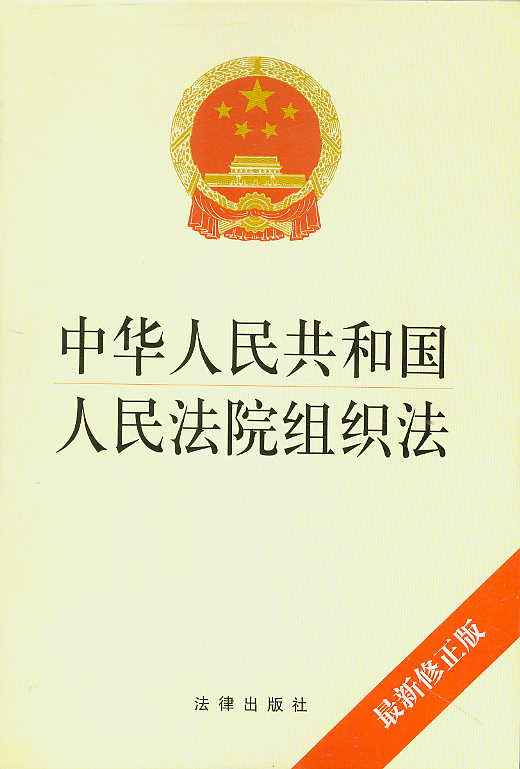
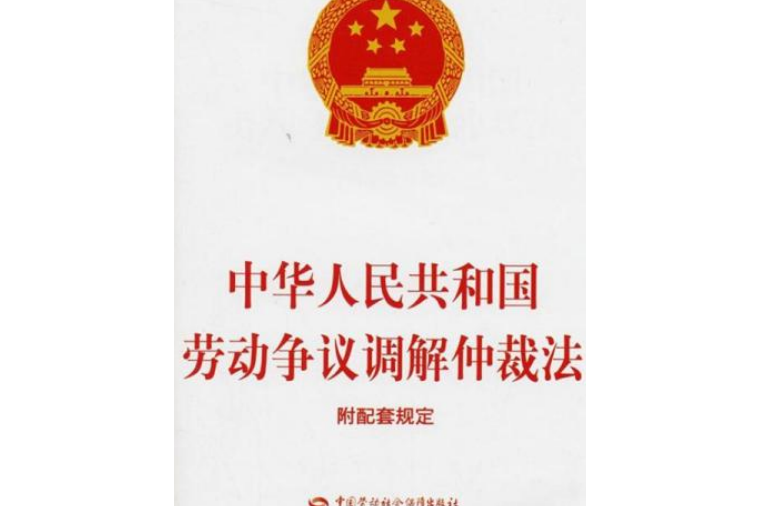
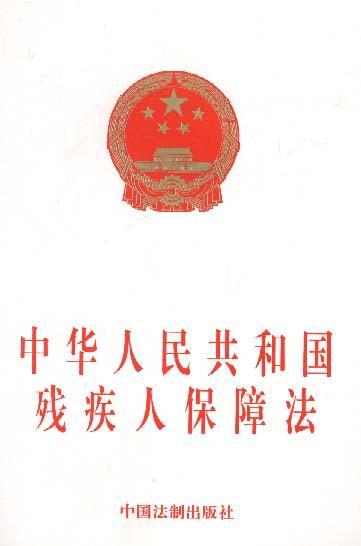
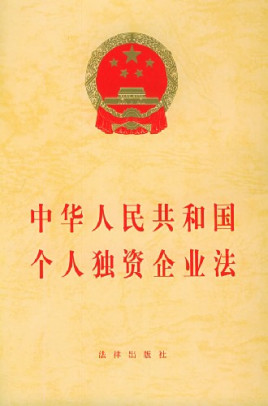
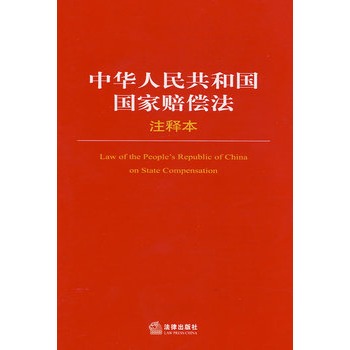
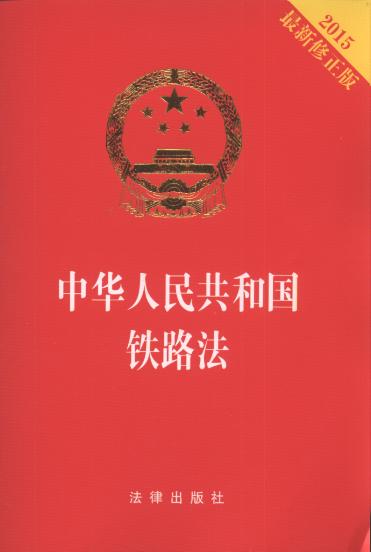
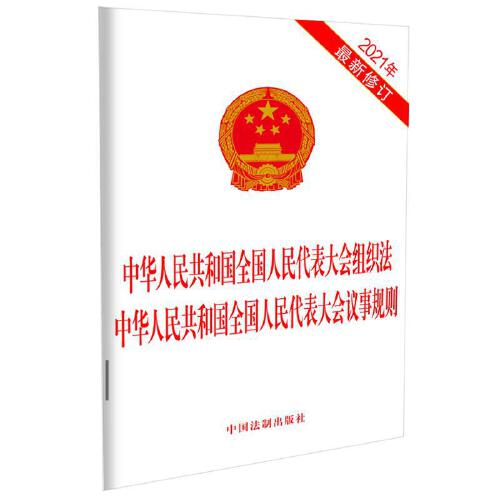


發表評論 取消回複